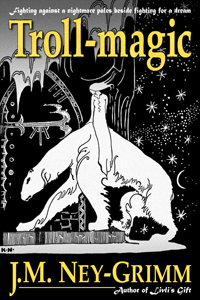 I like to group the horror genre into two categories: Lovecraft and King. Lovecraftian horror is weird, often relies on creatures of a sort, and is terrifying because Lovecraft was a master at “between the frames” writing–he leaves just enough open to interpretation that the reader fills in the blanks, ending up with a story tailor made to the reader’s own fears. Kingsian horror is often weird too–sometimes really out there–but more often than not is rooted in a believable and extremely detailed setting, with natural dialogue and organic characters. It’s effective because it feels so real. In my experience, most horror falls somewhere under one or the other of these categories, but it’s rare that a book does both. Speaking to the Eyes Indie favourite Ryan Casey manages to pull it off with his newest offering, The Painting (The Watching).
I like to group the horror genre into two categories: Lovecraft and King. Lovecraftian horror is weird, often relies on creatures of a sort, and is terrifying because Lovecraft was a master at “between the frames” writing–he leaves just enough open to interpretation that the reader fills in the blanks, ending up with a story tailor made to the reader’s own fears. Kingsian horror is often weird too–sometimes really out there–but more often than not is rooted in a believable and extremely detailed setting, with natural dialogue and organic characters. It’s effective because it feels so real. In my experience, most horror falls somewhere under one or the other of these categories, but it’s rare that a book does both. Speaking to the Eyes Indie favourite Ryan Casey manages to pull it off with his newest offering, The Painting (The Watching).
King and Lovecraft had very different styles of writing, and The Painting works as well as it does because Casey is able to emulate both while retaining his own unique voice. It’s essentially divided into two parts, which I’ll term the House and the Quest.
The House, consisting of the beginning and ending of the book, the main character–Donny–is set up as a writer desperate to get his creative juices flowing. He’s stagnated on his current book, and comes to an abandoned house in an effort to find some real inspiration. In the house he finds a painting–a painting featuring six mysterious figures who seem to moving closer and closer…and who are definitely watching him.
This part of the book has a delightfully gothic flavour–it reminded me a lot of Poe in the way it’s set up, though it had a nice conversational feel to it rather than that author’s usual stuffy prose. This is an opportunity for Casey to show off–I’ve said before that’s he’s got real talent for creating tension, and it pays off in spades here. It’s creepy, atmospheric, and (in parts) disturbing. In a good way, of course.
But the real character of the book comes through in the Quest. (That’s a bit of a misnomer, but the closest thing I could think of to describe this part without spoiling it.) Donny finds himself is an unusual situation, and needs to find his way out. He elicits help, but the odds are stacked against him–especially since he’s not clear on what exactly is going on. The tension is prevalent here, but in a different way; it’s a sense of foreboding panic that rises to a perfect climax. It’s a great middle to this narrative, and Casey does a great job in making sure that the built up tension doesn’t release too slowly so that it carries through into the last part of the book.
The great thing about the Quest is that it’s very different from the rest of the book. A lesser author would run into some trouble here–it could seem jumbled or incoherent. Instead, the juxtaposition works in Casey’s favour, and acts to strengthen the story as a whole. One of the conceits in this story is that Donny is continually unsure as to what’s happening around him–he questions the things he sees, ascribes it to an over-active imagination, even convincing himself he’s been lost in his own narrative. The differences in tone reinforce that theme.
But here’s the thing: the Quest part of the book is completely different. It’s jarring, and a bit weird–but it actually feels more sane than the rest of the book. This is closer to Kingsian horror. The characters and setting are vibrant, living things, and one has no trouble getting invested in what’s happening. Whereas Donny spends the previous couple dozen pages frightened and trembling (and rightly so), he seems more in control during this part. And yet, he shouldn’t–for reasons I can’t give without spoiling. This juxtaposition, in my mind, is the best thing about this story. It brings the story from a good horror tale to something completely unique–something I’ve come to expect from Casey’s writing.
I think Casey has struck a delicate balance here. If the ‘flavours’ were reversed (King sandwiching Lovecraft), it wouldn’t work; the middle would seem like a fever-dream that’s so out there that the reader can just suspend their disbelief (and connection to the character) until things “get real” again. (Something like Lovecraft’s “Dream Cycle” stories, which never really sat well with me.) By giving us instead a potentially unstable character who finds a bit of stability, we question how authentic that stability is–giving an immense amount of depth to the character. It’s really very well done.
There’s only one thing I can really say against The Painting: there are parts of it that aren’t explained as much as I may have liked. Now, on the one hand, you want horror stories to leave something to the reader’s imagination–that’s why Lovecraft was such a genius. And I’m pretty sure that if the menacing shapes in the painting were explained, it would drain the magic out of the story. In point of fact, the mystery is as it should be, and there are bits that shouldn’t be explained. If I think something’s missing, it’s only because I want to learn more about the world Casey has created. This story left me with questions about what’s really going on, despite the execution and resolution of the plot.
Fortunately, this is only part one of three. The other instalments are coming–keep an eye out for the other instalments of The Watching. I have no doubt the rest will be as gripping as the first.
You can find Ryan Casey online at his blog, and on Twitter. Visit the Amazon and Kobo stores for some excellent reading material.

